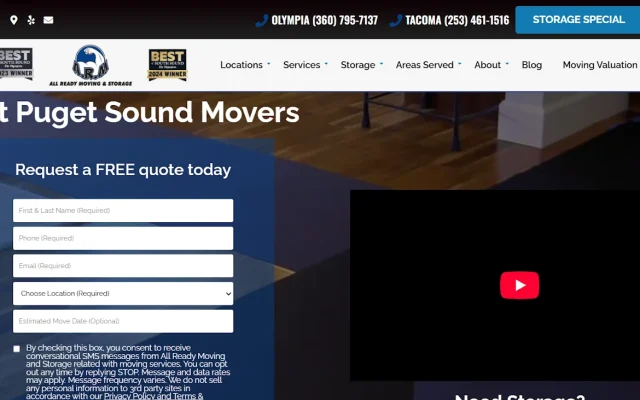If you’re on the hunt for a new apartment, you may have already heard the phrase “rental history” floating around. Maybe you’ve come across it while apartment hunting in cities like Houston, Dallas, or Austin. Here’s a number that might grab your attention: 89% of landlords use rental history reports to screen tenants before handing over the keys. That’s right—your rental past is more than just a footnote in your application. It’s the backbone. So, whether you’re a first-time renter or an experienced mover, knowing how to check your rental history could make or break your next apartment hunt.
What Exactly Is a Rental History?
Before we dive into how to check your rental history, let’s cover what it is and why it matters. A rental history report is essentially a background check for renters. It reveals your rental track record—where you’ve lived, how long you stayed, and whether you were a good tenant. Did you pay rent on time? Were there any complaints? Have you ever broken a lease or been evicted? All of this shows up in your report, and landlords use it to decide if you’re worth the risk.
Why Does Rental History Matter?
Picture this: You’ve found the perfect Houston apartment with all the amenities you need, but your rental history shows multiple late payments or an eviction. Chances are, that dream apartment might slip away. Landlords look at rental history reports to gauge whether you’re reliable. Just like credit checks, rental history gives them a snapshot of how you’ll likely perform as a tenant.
Checking your rental history in advance allows you to stay a step ahead. You can spot any errors and fix them before a potential landlord sees them. That’s power in your hands.
How to Check Your Rental History: The Basics
You might be thinking, “Okay, I get it, but how do I check my rental history?” Great question! Thankfully, it’s a straightforward process, and you have a few options at your disposal.
1. Use a Tenant Screening Service
The easiest way to check your rental history is to use a tenant screening service. These companies provide reports similar to what landlords see. TransUnion SmartMove, for example, offers a detailed breakdown of your rental history, credit, and criminal background. If you’re looking for a quick, deep dive into your rental past, this is a good option.
For those apartment hunting in Dallas or San Antonio, SmartMove is perfect for giving you insights into the factors landlords consider. It’s especially helpful if you’re moving into high-demand areas where landlords scrutinize every detail.
2. Get Your Credit Report
Your rental history often overlaps with your credit history. Late rent payments can show up on your credit report, so requesting a copy from TransUnion, Equifax, or Experian can give you some insight. You’re entitled to one free report a year from each of these agencies.
If you’ve been renting long-term, your credit report might give you a clear snapshot of how you’ve handled rent in the past. While this won’t always include every detail from your rental history, it’s a great starting point.
3. Contact Previous Landlords
A more direct approach is to reach out to previous landlords. Requesting references is not only useful for potential landlords but also a way for you to verify what they’ll say about you. Get ahead of any potential discrepancies by ensuring that you and your former landlords are on the same page.
Imagine you’ve rented in various cities, moving from Austin apartments to ones in San Antonio. Each landlord could have a different take on your reliability as a tenant, and it’s worth finding out what they’ll report before a new potential landlord does.
4. Run a Criminal Background Check
While this may not be directly related to your rental history, it’s important to know if anything from your criminal past could affect your ability to rent. Services like Intelius and ClearChecks provide background checks similar to what landlords might run.
In some cases, landlords will consider criminal background as part of their tenant screening process. If there’s something in your past you’d rather discuss upfront, knowing it’s on your report gives you time to prepare an explanation.
What Goes Into a Rental History Report?
So, what exactly do landlords see in your rental history report? Let’s break it down:
1. Past Rental Addresses and Dates
At the core of a rental history report are your previous addresses. This section provides a timeline of where you’ve lived, how long you stayed, and whether you moved out as planned or broke a lease early. Landlords often pay close attention to any frequent moves, as they may signal instability.
Whether you’re eyeing Houston apartments, Dallas apartments, or even Austin apartments, your rental history offers landlords a clear picture of how settled you tend to be. A history of long-term tenancies often boosts your appeal, while shorter stays might raise some eyebrows unless properly explained.
2. Payment History

Did you pay your rent on time? This is the question most landlords are asking. Your rental history report will list any instances of late payments, missed payments, or rent disputes. Consistent on-time payments are a big green flag for landlords and can make or break your chances of landing that coveted apartment.
If you’ve made all your rent payments on time, congratulations—this will be one of the strongest selling points in your favor. But if there have been hiccups along the way, it’s important to be prepared to explain those instances. A missed payment due to a temporary issue like job loss is much easier to forgive if you’ve been rock-solid since.
3. Evictions
Evictions are a significant part of any rental history report. If you’ve been evicted before, this will show up on the report, and it’s likely to be a red flag for landlords. That said, not all evictions are the end of the road. If you’ve taken steps to improve your situation since the eviction—like resolving the issues that led to it—you still have a chance to convince a landlord to take a chance on you.
In markets like San Antonio apartments, where competition can be fierce, addressing any past evictions head-on and offering additional financial assurances (like a higher deposit) might help you stand out.
4. Lease Violations
Breaking the terms of your lease—whether it’s having an unauthorized pet, making major alterations to the property without permission, or causing damage—will be noted in your rental history. Landlords want tenants who respect the lease terms, and any significant violations can damage your standing.
For example, if you broke a lease early or violated pet policies while living in Dallas apartments, that could work against you when applying for your next rental. However, landlords might be more understanding if the violation was minor or if you’ve learned from the experience and can show responsible behavior since.
5. References from Past Landlords
Landlord references are the personal touch that adds context to the facts on your rental history report. Did you communicate well? Were you respectful of the property? Did you leave the apartment in good condition? A glowing reference can go a long way in securing your next place, especially in competitive rental markets like Austin apartments or Houston apartments.
If you have a good relationship with your previous landlords, it’s a good idea to ask them for a written reference. These references give potential landlords insight into your character and how you handle tenant responsibilities beyond just paying rent.
6. Criminal Background and Credit Score
While not always part of the rental history itself, many landlords bundle criminal background checks and credit reports with rental history reports. These checks allow landlords to assess your overall risk as a tenant. A clean criminal background and solid credit score can reassure landlords that you’re likely to be a responsible and trustworthy renter.
In areas with strict screening criteria—such as upscale San Antonio apartments or modern Houston apartments—your credit score could be the deciding factor between you and another applicant. If your credit score is less than stellar, you can often still rent by offering a co-signer or providing a higher deposit.
What If Your Rental History Isn’t Perfect?
Not everyone has a spotless rental history, and that’s okay. If you’ve made a few mistakes along the way, you’re not alone. But how do you turn things around? Here’s the good news: you can improve your rental history with a few proactive steps.
1. Prioritize On-Time Payments
Late rent payments are one of the most damaging marks on a rental history report. Moving forward, make on-time payments a non-negotiable. Set up automatic payments or reminders to ensure you never miss a due date again.
2. Clear Up Old Debts
If you have any outstanding rental debts, now is the time to clear them up. Contact your previous landlord and see if you can resolve any lingering issues. Not only will this improve your rental history, but it could also boost your credit score.
3. Be Transparent
If you know there’s a blemish on your rental history, address it upfront. Being proactive about explaining past mistakes shows maturity and responsibility. It’s always better to control the narrative than let a landlord discover it themselves.
Checking Your Rental History Like a Pro
Think of checking your rental history like a pre-interview for an important job. Would you walk into an interview without knowing the details of your resume? Of course not! The same applies here. Whether you’re eyeing a place in San Antonio apartments or considering the many Austin apartments available, you need to be prepared.
If your rental history is squeaky clean, congrats! But if it has a few stains, don’t panic. You have the tools to check it, fix it, and move forward. In a competitive market, being one step ahead is key, and knowing how to check your rental history will give you a leg up on the competition.
What If You Don’t Have a Rental History?
If you’re a first-time renter, you might wonder, “What if I don’t have a rental history at all?” Don’t worry—everyone starts somewhere. Not having a rental history can seem like a disadvantage, but there are ways to show landlords you’re a reliable tenant even without that track record.
1. Leverage Your Credit Score

Your credit score is the next best thing to a rental history. It shows landlords whether you’re good at managing financial responsibilities. A high credit score can reassure them that you’re likely to pay rent on time, even if you’ve never rented before.
2. Provide Character References
If you don’t have rental references, you can provide character references from people who know your work ethic and responsibility. Former employers, college professors, or even long-term neighbors can vouch for your reliability. These references help paint a picture of who you are beyond just the data on paper.
3. Offer a Larger Security Deposit
If you’re renting without a rental history and want to show good faith, offering a larger security deposit can be an effective tactic. This move shows landlords you’re financially stable and willing to provide extra security, giving them peace of mind despite your lack of rental background. This can be especially useful in competitive markets like Dallas apartments or San Antonio apartments, where landlords may have multiple applicants to choose from.
Final Thoughts
Your rental history is one of the most critical pieces of information landlords use to decide if you’ll be a good tenant. Whether you’re moving into a new Houston apartment or staying local with Dallas apartments, understanding your rental history could be the difference between landing your dream place or continuing the search.
Don’t wait until it’s too late. Check your rental history now, fix any issues, and give yourself the best shot at securing that perfect apartment. Happy apartment hunting!







